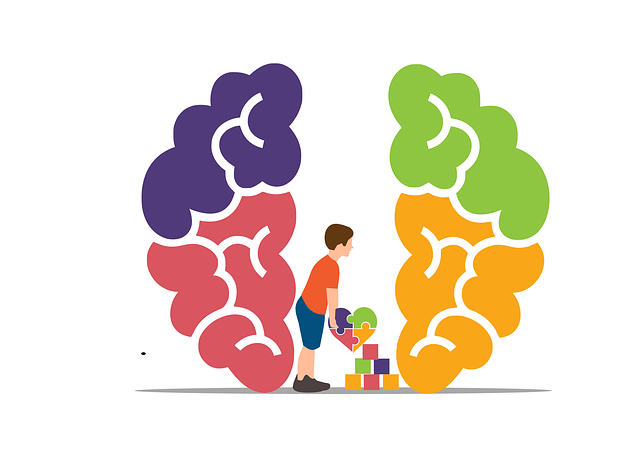Lafayette Young Adults Therapy (LYAT) promotes positive thinking as a powerful tool for boosting emotional well-being and mental health in a stressful world. They offer tailored therapeutic approaches, including journaling exercises and specialized programs, to empower individuals in navigating life's challenges with optimism and resilience. By challenging negative thought patterns, practicing gratitude, and incorporating structured self-care routines, LYAT helps young adults develop inner strength to manage stress and foster continuous personal growth, ultimately enhancing their mental wellness.
Positive thinking exercises are powerful tools for enhancing mental well-being, especially among young adults. This comprehensive guide explores the foundational role of optimism in overall health through the lens of Lafayette Young Adults Therapy. We’ll delve into strategies for designing and implementing effective exercises, offering practical techniques to foster lasting positive habits. By understanding these methods, individuals can navigate challenges with resilience and reap the benefits of a more optimistic outlook on life.
- Understanding Positive Thinking: A Foundation for Mental Well-being
- The Role of Lafayette Young Adults Therapy in Cultivating Optimism
- Designing Effective Positive Thinking Exercises
- Implementing the Exercises: Strategies and Techniques
- Measuring Success and Sustaining Positive Habits
Understanding Positive Thinking: A Foundation for Mental Well-being

Positive thinking is a powerful tool for enhancing emotional well-being and overall mental health. At Lafayette Young Adults Therapy, we believe that cultivating a positive mindset can significantly impact an individual’s quality of life. By focusing on optimism and gratitude, individuals can navigate challenges with resilience and a sense of empowerment. This approach serves as a foundation for fostering healthy coping mechanisms and building mental strength.
In today’s fast-paced world, where stress and anxiety are prevalent, understanding the science behind positive thinking is essential. Healthcare providers play a pivotal role in promoting emotional well-being through various techniques. These include encouraging clients to challenge negative thought patterns, replacing them with more adaptive and positive ones. Such practices contribute to the reduction of mental illness stigma within the community, fostering an environment where seeking support is seen as a sign of strength rather than weakness.
The Role of Lafayette Young Adults Therapy in Cultivating Optimism

The Lafayette Young Adults Therapy (LYAT) plays a pivotal role in empowering individuals to cultivate optimism and enhance their mental wellness. Through tailored therapeutic approaches, LYAT provides a safe space for young adults to explore and process their emotions, fostering an environment conducive to emotional healing processes. Therapists at LYAT guide clients through effective journaling exercises that serve as powerful tools for self-reflection and positive thinking. This Mental Wellness Journaling Exercise Guidance encourages individuals to record their thoughts, identify negative patterns, and replace them with optimistic alternatives, thereby strengthening their inner strength development.
In addition, LYAT offers specialized programs that target specific emotional challenges common among young adults. These initiatives empower clients with coping strategies, resilience-building techniques, and a deeper understanding of their emotional responses. By engaging in these therapeutic practices, individuals can learn to navigate life’s obstacles with optimism, cultivating a more positive outlook and improved overall mental wellness.
Designing Effective Positive Thinking Exercises

Designing Effective Positive Thinking Exercises involves creating activities that challenge individuals to reframe negative thoughts and cultivate a more optimistic mindset. At Lafayette Young Adults Therapy, therapists often incorporate these exercises into treatment plans to enhance mental wellness and prevent burnout, particularly among young adults navigating life’s stressors.
When developing such exercises, it’s crucial to tailor them to the specific needs and challenges of the individual. Some effective strategies include journaling prompts that encourage reflection on past successes or gratitude practices that focus on appreciating daily experiences. Additionally, cognitive reframing techniques, where negative thoughts are challenged and replaced with positive alternatives, can significantly boost inner strength development. These exercises should be interactive and engaging to foster active participation and ensure their impact extends beyond the therapy session.
Implementing the Exercises: Strategies and Techniques

Implementing positive thinking exercises requires a structured approach to ensure maximum benefit. At Lafayette Young Adults Therapy, we advocate for consistent practice and personalization. Start by setting aside dedicated time each day for these activities, integrating them into your existing self-care routine. Techniques can vary from guided meditations, affirmations, gratitude journaling, or even creative outlets like art or music. Key is to choose methods that resonate with you personally.
For instance, Trauma Support Services often recommend trauma-informed practices tailored to individual needs. Emotional Well-being Promotion Techniques, when incorporated into a regular Self-Care Routine Development for Better Mental Health, can significantly enhance resilience and coping mechanisms. Remember, the goal is not perfection but progress. Be patient with yourself as you navigate these exercises, allowing them to become natural components of your journey towards improved mental health.
Measuring Success and Sustaining Positive Habits

Measuring success and sustaining positive habits are integral parts of any personal growth journey. At Lafayette Young Adults Therapy, we often emphasize the importance of tracking progress to stay motivated and achieve long-term mental wellness. This involves setting clear, achievable goals and regularly evaluating one’s emotional intelligence and mindfulness practices. By integrating Mindfulness Meditation into daily routines, individuals can enhance their ability to manage stress and cultivate a more positive outlook on life.
Emotional Intelligence plays a pivotal role in sustaining these habits. Recognizing triggers that lead to negative thought patterns and replacing them with proactive coping mechanisms is key. Regular reflection and self-awareness allow for continuous improvement. Through consistent practice, individuals can transform their lives, fostering resilience and a deeper connection with their mental wellness, ultimately enriching their overall quality of life.
Positive thinking exercises, as facilitated by Lafayette Young Adults Therapy, offer a powerful tool for enhancing mental well-being. By combining understanding, effective design, and measured success, individuals can cultivate optimism and sustain positive habits. Implementing these strategies not only improves current emotional states but also equips people with resilience to navigate life’s challenges more effectively. Remember that consistent practice is key; with dedication, the benefits of positive thinking can reverberate through all aspects of one’s life.














